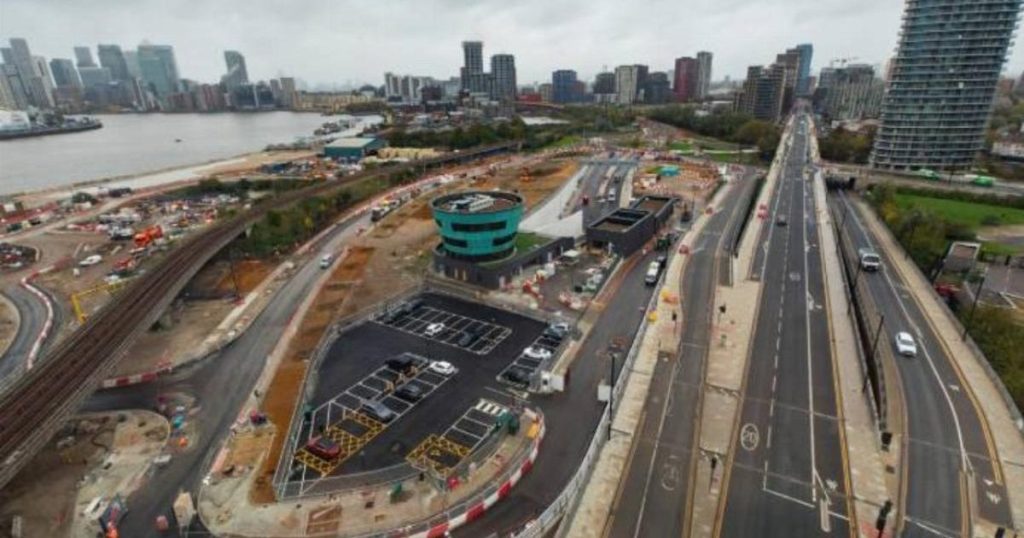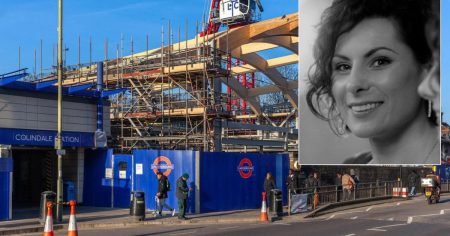The impending opening of the Silvertown Tunnel, a new river crossing beneath the Thames connecting the Greenwich Peninsula and Newham, has sparked controversy and criticism. Slated to open on April 7th, the £2 billion tunnel will carry motor vehicles only, with cyclists and pedestrians prohibited due to cited safety concerns. This decision has ignited fierce debate, particularly regarding the implemented alternative: a dedicated cycle shuttle bus operating every 12 minutes alongside three regular bus routes, free for the first year. Critics argue that this solution is an inadequate afterthought, failing to prioritize active travel and raising doubts about its long-term viability. While Transport for London (TfL) touts the project as crucial for alleviating congestion and improving air quality, opponents express concerns about its potential to exacerbate traffic and pollution, questioning the true benefits against the substantial financial investment.
The Silvertown Tunnel project, inherited by Mayor Sadiq Khan in 2016, has been met with resistance from environmental groups and cycling advocates. Caroline Russell, leader of the Green Party in the London Assembly, condemns the project as a missed opportunity to create a truly sustainable crossing that prioritizes cycling and walking. She argues that the Mayor’s decision to proceed with the car-centric tunnel undermines his environmental credentials and contradicts London’s transport strategy. The Green Party leader further criticizes the cycle shuttle bus as a “clunky” and impractical solution, highlighting the inconvenience and likely low uptake of loading bicycles onto a bus, especially for cargo bikes or trikes. Concerns have also been raised about the long-term sustainability of the shuttle bus, with fears that it could be scrapped after the initial free year if usage remains low.
The financial implications of the Silvertown Tunnel project are a further point of contention. Implementing the new tunnel also introduces a toll for both the Silvertown and the adjacent Blackwall Tunnel, a charge ranging from £1.50 to £10 depending on the vehicle type and time of day. While TfL argues that the tolls are necessary to manage traffic flow and mitigate potential congestion and air quality issues, critics view them as an additional burden on drivers, particularly those using the already congested Blackwall Tunnel. This pricing structure, combined with the projected long-term debt associated with the tunnel’s construction, has led to accusations that the project prioritizes financial gain over the needs of Londoners. Caroline Russell expresses concerns about the long-term financial burden on Londoners, questioning the wisdom of investing in a project that contradicts stated environmental goals and provides insufficient support for sustainable transport options.
The debate surrounding the Silvertown Tunnel extends beyond its immediate impact on traffic and transport. Opponents argue that the tunnel represents a missed opportunity to invest in truly sustainable infrastructure. The focus on motor vehicles, they contend, contradicts London’s broader transport strategy, which emphasizes active travel and public transport. Simon Munk, from the London Cycling Campaign, labels the provided bus and cycle shuttle services as “greenwashing,” arguing they are insufficient to offset the anticipated increase in motor vehicle traffic across east London. He emphasizes that the tunnel fundamentally conflicts with the Mayor’s own transport priorities, which aim to reduce reliance on cars and promote walking and cycling.
The environmental consequences of the Silvertown Tunnel are another key concern. While TfL maintains that the modern tunnel will improve air quality and reduce journey times, critics dispute these claims. Dominic Leggett, from the Stop Silvertown Tunnel campaign, predicts a significant increase in polluting vehicles entering Newham through the north portal, exacerbating air pollution in the area. He argues that the benefits of the tunnel, if any, will be minimal and will primarily serve to worsen conditions for Blackwall Tunnel users due to the newly introduced tolls. The debate about the tunnel’s environmental impact highlights a broader disagreement about the future of transport in London and the best ways to address congestion and air pollution.
The controversy surrounding the Silvertown Tunnel underscores the complex challenges of balancing competing interests in urban planning. While TfL emphasizes the need to address existing congestion and improve connectivity, critics argue that the project prioritizes motor vehicles at the expense of sustainable transport options and potentially exacerbates environmental problems. The debate about the Silvertown Tunnel is not merely about a single infrastructure project; it reflects a broader discussion about the future of London’s transport system and the vision for a more sustainable and equitable city. The implementation of tolls, the limited provision for cyclists and pedestrians, and the potential increase in motor vehicle traffic have all raised concerns about the project’s overall impact and its alignment with London’s long-term transport goals.











